Why Do Professional Gemstone's Buyers in Sri Lanka Need Intermediaries?
Sri Lanka is a major source of colored sapphires and remains one of the few countries still actively mining these precious stones. Many of the world's most famous blue sapphires originate here. For example, a dazzling 392.52 carat unheated blue sapphire necklace recently auctioned at Christie’s was identified by the Gübelin Gem Lab as Sri Lankan in origin, unheated, and of exceptional quality one of the largest faceted sapphires ever examined by the lab. ( Part of information are according to Gubelin's post)
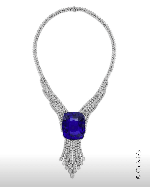
(Photo from Christie's)
Against this backdrop, Sri Lanka has become a key destination for gemstone traders. The country currently has two major and mature gemstone markets: Ratnapura (the City of Gems) and Beruwala. These two markets were detailed in a previous article for those interested in learning more.
Is It Legal to Take Gemstones Out of the Country?
Under Sri Lankan government regulations, tourists are allowed to legally purchase up to USD $10,000 worth of gemstones for personal use, provided they are not in commercial quantities. These stones can be taken out of the country using official invoices from licensed jewelry companies. However, whether the quantity qualifies as “non-commercial” is at the discretion of customs officials.
If a buyer wishes to take gemstones out for commercial purposes, they must do so through legal channels, using a properly registered jewelry company for export declarations. This can be done either through personal carriage or via shipment.
Who Is Responsible If the Gemstone Has Issues?
The upstream gemstone market in Sri Lanka is filled with products of varying quality from raw stones to cut and polished gems. You will find everything from glass, synthetic stones, heated and unheated sapphires, beryllium-treated, glass-filled, irradiated, and resin-treated stones. Not all sellers have adequate gemological knowledge, and sometimes even the supplier doesn’t realize they are selling treated or synthetic stones.
Just over a month ago, two Chinese men were arrested and deported after attempting to trade synthetic gems and counterfeit RMB at the Ratnapura market. Some of those fake stones had already entered circulation before they were caught.
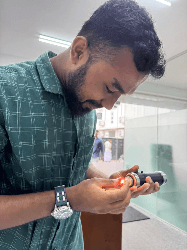
What Risks Do Sellers Face?
After viewing the gemstones and negotiating a price, buyers are typically expected to pay immediately or soon after. Sellers are often afraid that buyers might run off with the stones. In fact, there have been incidents in the Sri Lankan market where buyers especially those not working through intermediaries have taken the stones and later tried to delay payment until a certificate was produced. In some cases, they fabricated certificates to return the stones or swapped them for inferior stones.
This is why many transactions are carried out under what’s known as a cash price arrangement.
Note:
*Different gemstones have varying levels of hardness. If dropped, they can be damaged.
*Don’t imitate local Sri Lankans in online videos by examining gemstones while standing on the street. If you drop the gem, the owner could demand an exorbitant amount in compensation.
Cash Transactions Can Be Risky
Three years ago, during a boom in Chinese buyers, there was a flood of treated gems in the market. A 15-carat bright purple spinel with high clarity once entered my gem trading office. The asking price was incredibly tempting, but the seller demanded immediate cash. I told him I needed 10 minutes to consider and secretly had the stone tested at a nearby gem lab.
Because of my long-standing relationships with gem labs in Sri Lanka, I received expedited service. The result? It was glass. For safety reasons, I pretended I just wasn’t interested in the gem after all, I didn’t know who this person was or what he might do.
Who Are These Middlemen?
In Beruwala’s gemstone market, many suppliers import rough stones from Madagascar, Tanzania, and other countries, polish and cut them in Sri Lanka, and then sell them. These suppliers often don’t have the time or resources to negotiate with buyers directly, so they rely on runners or gemstone's brokers to bring their goods to market.
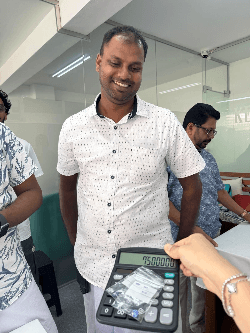
*The person showing you gems might not be the actual owner. They could just be a middleman (also called a broker).
* Chinese buyers often refer to these brokers as "马仔" (Mā jāng), a cultural misunderstanding. In Sinhala, the term "Mā jāng" actually means "friend." Overhearing this, some Chinese began mistakenly using “马仔” to refer to gemstone's brokers.
What Protection Does the Buyer Have?
As previously mentioned, the authenticity of gemstones is always a concern. Once you’ve handed over cash to the seller, it becomes almost impossible to seek recourse if the stone turns out to be fake or treated. Even if you want to report the issue to the authorities, you may not have a legal transaction record. If you’re not on a proper business visa or have no long-term residency permit, you might not even be legally allowed to conduct such transactions.
For upstream purchases, I strongly recommend at least basic gem testing, even if it’s just verbal confirmation from a gemologist or gem testing labolatry. Once, a supposedly faceted moonstone brought into my office turned out to be glass. A third-party gem lab ensures both buyer and seller are on equal footing and can build mutual trust
Even when a gem comes with a certificate, it's advisable to have it re-tested. Some sellers issue certificates first and then enhance the gem afterward altering its color or clarity.
What About Exporting Without an Intermediary?
If you don't use an intermediary, how will you handle export declarations? How will you obtain a legal purchase invoice?
Many foreign buyers mistakenly assume Sri Lanka’s gem market operates like Thailand’s. But Thailand is a duty free trading hub for gemstone, Sri Lanka is not. In Sri Lanka, all gems entering or exiting the country must be legally declared. Failure to do so could result in heavy fines or even confiscation.
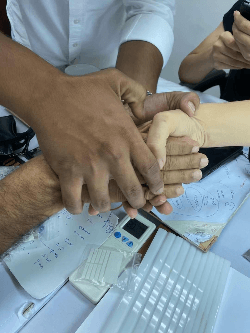
What If the Broker Brings Gems to My Residence?
Some buyers ask gemstone's brokers to bring gems directly to their homes to avoid intermediary fees. But there have been cases where buyers’ residences were robbed, and the gemstones were never recovered. First, ask yourself: Is your visa valid for business use? If something goes wrong, are you legally protected? Who can help you in a foreign land?
The Chinese Embassy has repeatedly urged Chinese nationals in Sri Lanka to follow local laws when purchasing gems. The frequency of informal disputes indicates that many operate outside the legal framework leaving the Embassy unable to intervene.
Can You Freely Switch Intermediaries?
The gemstone market in Sri Lanka has a traditional brokerage culture. A reputable intermediary follows industry norms. If a buyer comes to the market with Broker A, they are considered Broker A’s client. If the buyer switches to another broker, they must have a reasonable explanation, or disputes may arise between intermediaries. In severe cases, the original broker might even report the buyer to customs, triggering an investigation into whether gemstones are being exported illegally.
Final Words: Wishing You Safe and Successful Trading!
*Not all intermediaries in Sri Lanka have legal licenses. Always ask to see the intermediaries company registration book, gemstone dealers license from the National Gem and Jewellery Authority (NGJA), and Form 1doucument which is shareholder registration to verify the true company owner.
For more information on export procedures, refer to my other articles or message me directly.
*All professional content above is based on my personal experiences and knowledge. If you wish to share or reproduce this content, please credit the source. Thank you!
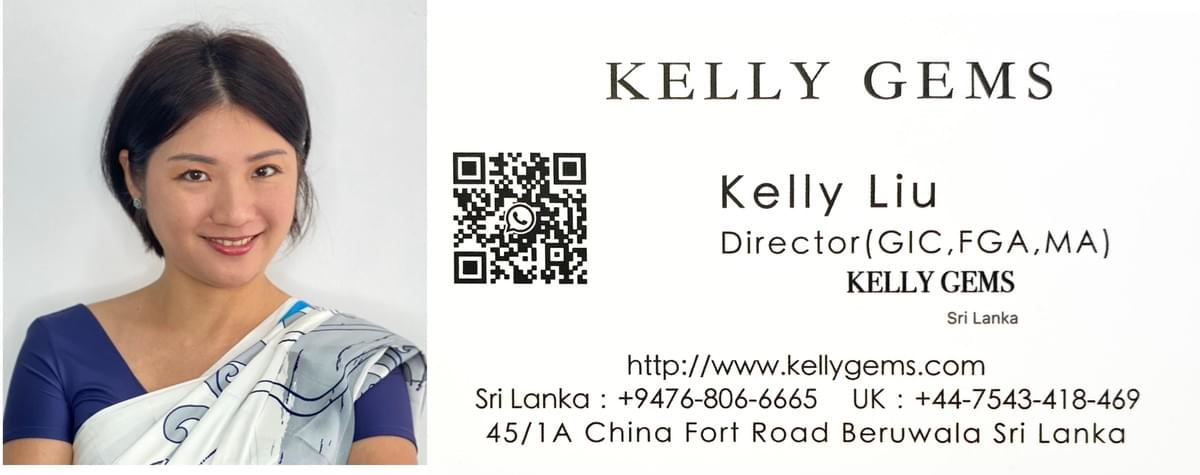
Author
Kelly Liu
- With nearly a decade of gem brokerage(intermediary) experience in upstream Sri Lanka,
- GIC (Wuhan University of Geosciences, China),
- FGA (Gem-A, UK),
- Master in Luxury Jewelry Management from Birmingham City University, UK.
She has published solo academic research in the field of gemology in professional journals of Gem & Gemmology which publisher is China University of Geosciences.

